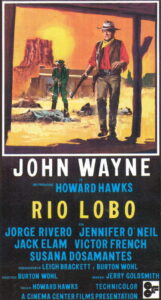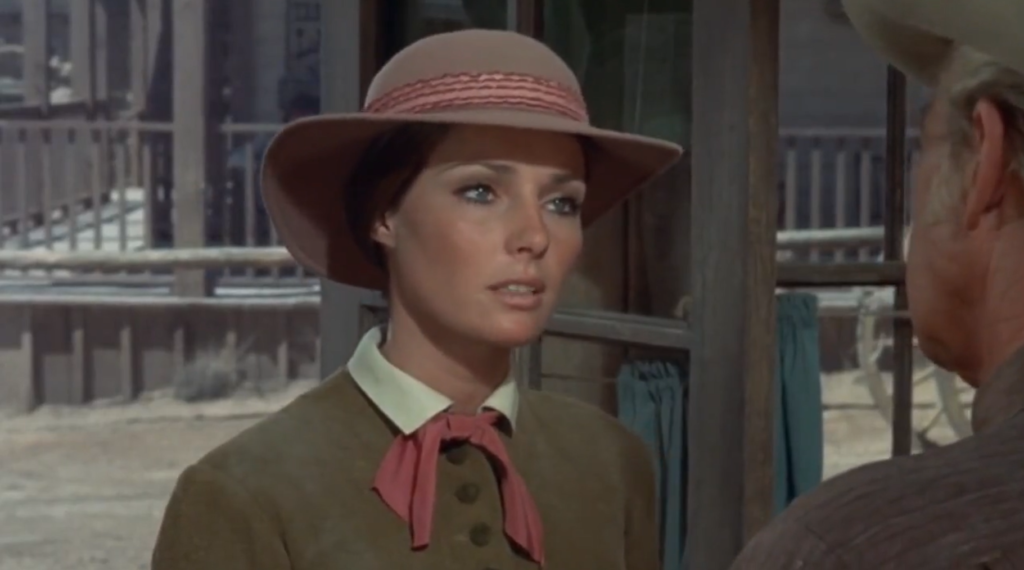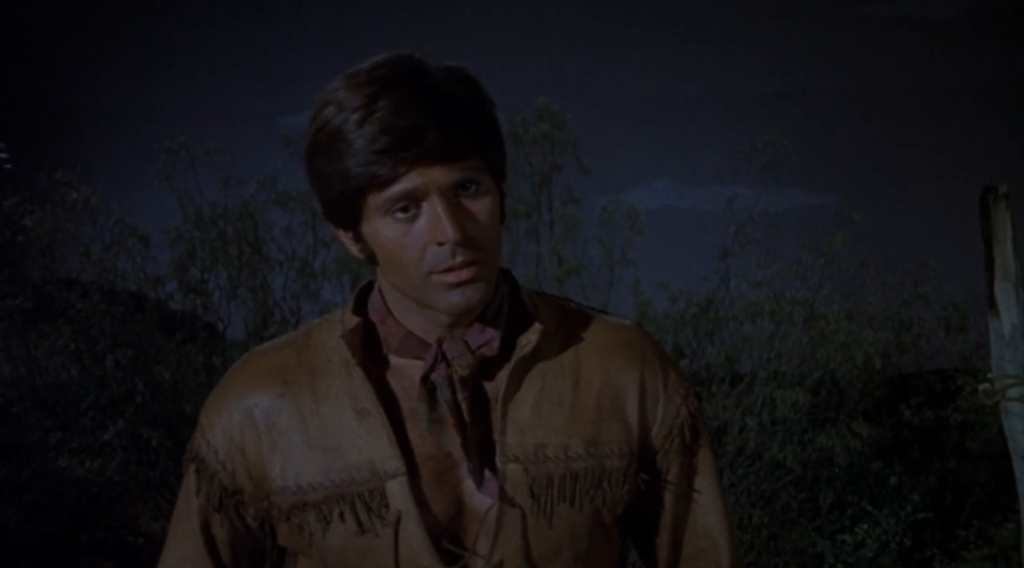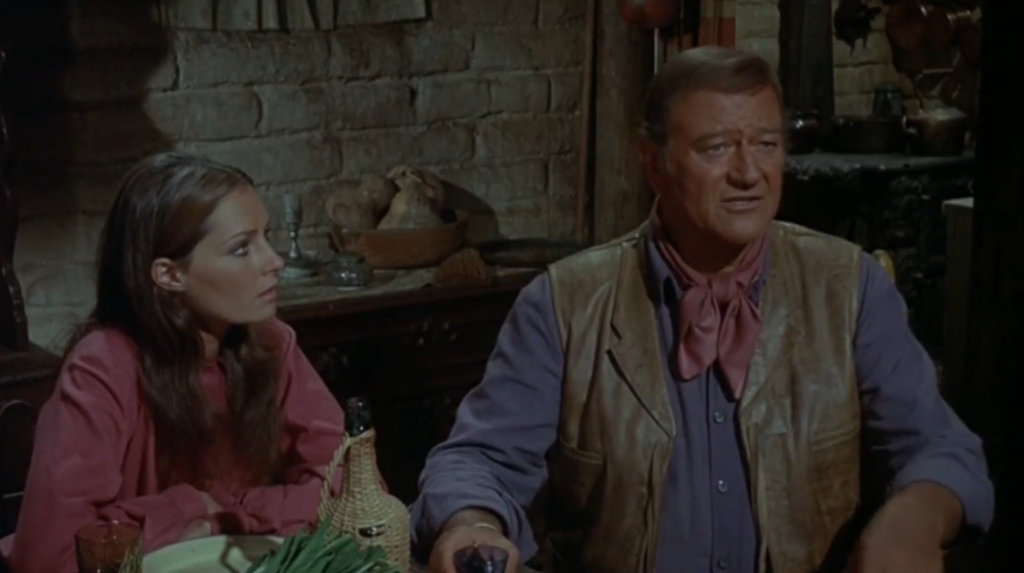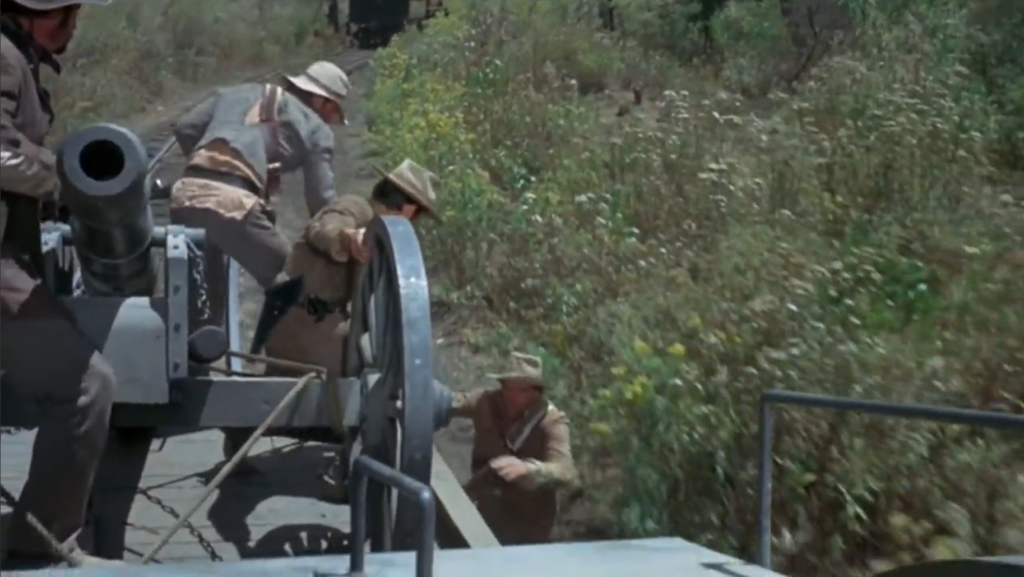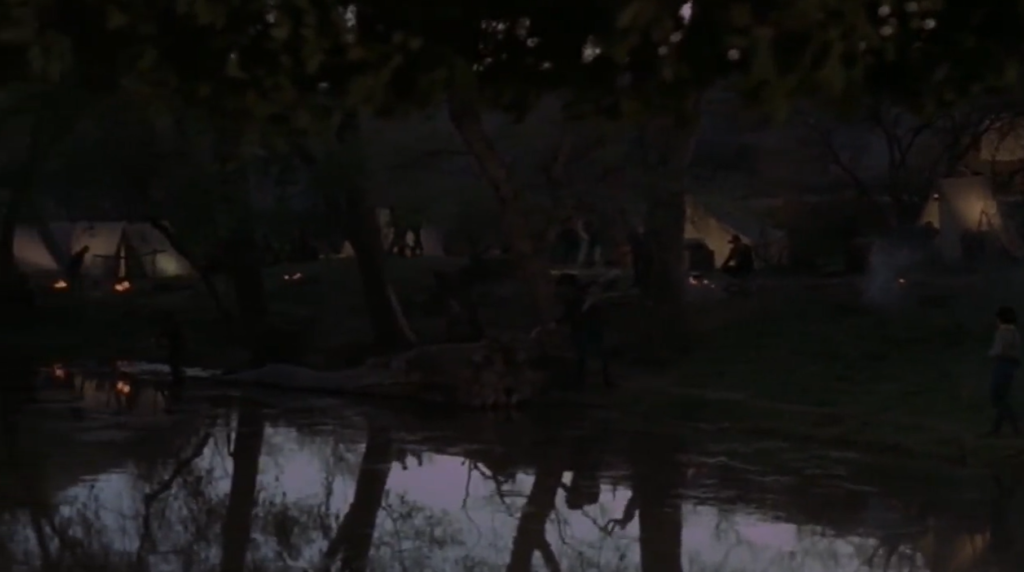Rio Lobo (1970)
“What you did was an act of war; but selling information — that’s treason, rotten treachery for money.”
|
Synopsis: |
|
Genres:
Response to Peary’s Review: and Jorge Rivero is surprisingly uncharismatic as her French-Mexican love interest and Wayne’s right-hand man. Meanwhile, Wayne (who was already suffering from the cancer that eventually killed him) seems to be mostly walking through his scenes. In his review, Peary spends a substantial amount of time analyzing Wayne’s character, who he notes comes across as “less of a superman”, “less dominant than in early films, and mellower”, “more of a father figure than a leader” — but it’s difficult not to interpret these characteristics as merely symptomatic of his personal exhaustion, and perhaps a weariness with the type of cliched roles he was being asked to play again and again (throughout his lengthy career, he starred in nearly 250 movies — of which no less than 36 are listed or discussed in Peary’s book!). Howard Hawks completists and/or fans of Wayne will likely be curious to check out this rather pedestrian western, but all-purpose film fanatics needn’t bother. Redeeming Qualities and Moments: Must See? Links: |
